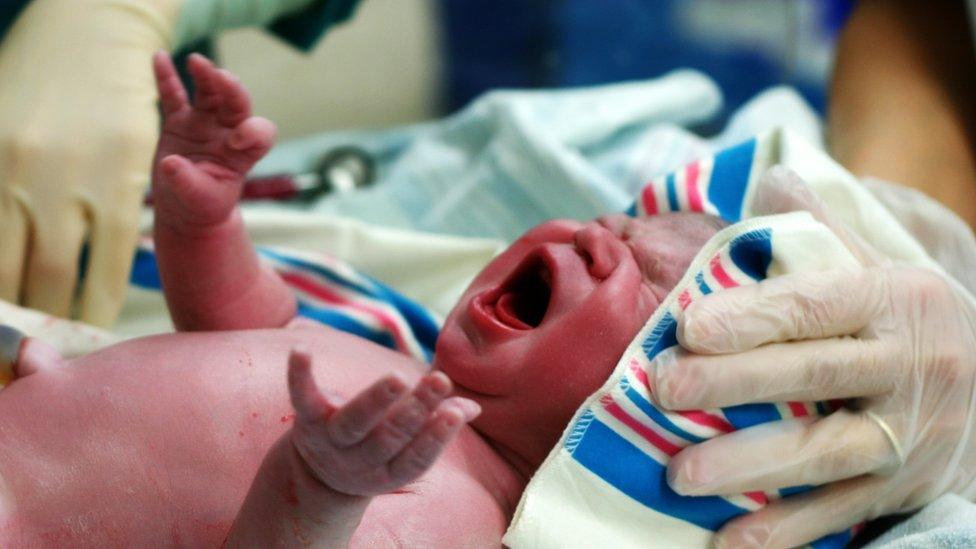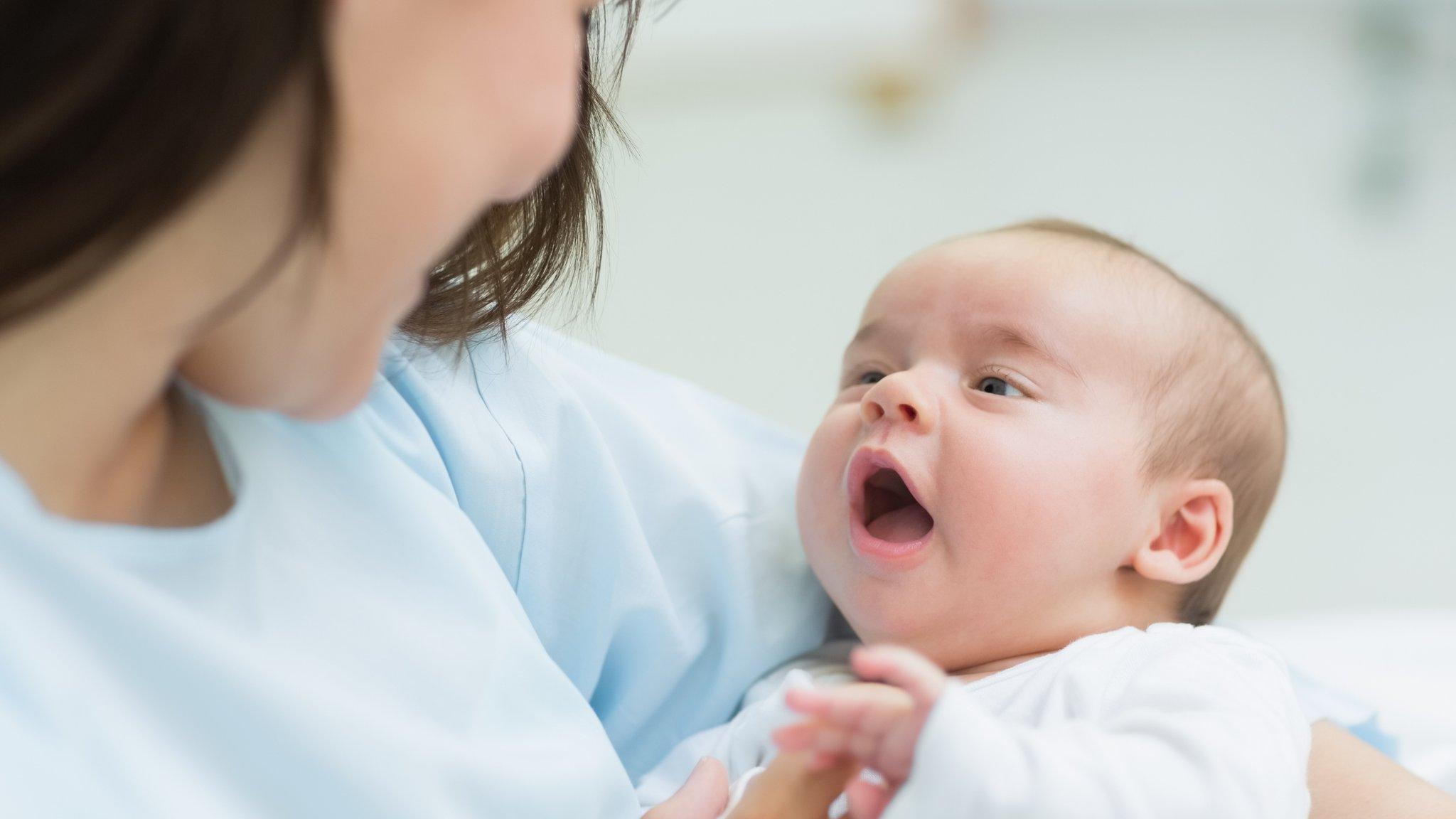Births to foreign-born mothers hit 28% in England and Wales
- Published

The average age women become mothers is just over 30 in England and Wales
The number of foreign-born mothers having babies in England and Wales in 2016 reached 28% - the highest level on record, official statistics show.
This figure has increased every year since 1990.
Data from the Office for National Statistics, external also shows more women in their 40s are giving birth than women aged under 20.
This is the second year in a row this has happened - a pattern last recorded in 1947.
Fertile 40s
The fertility rate for women aged 40 and over has now trebled since 1990, to 15.9 babies born per 1,000 women in that age group.
The rate at which women in their 30s are having babies has been on the rise since the 1980s.
In contrast, among women under 20 and aged 20-24, fertility rates are now at their lowest level since 1938.
The proportion of all live births to mothers born outside the UK stood at 11.6% at the start of the 1990s.
The ONS says one of the reasons for the increase since then is that fertility levels are generally higher among foreign-born women.
The overall number of live births in England and Wales decreased slightly last year, to just under 700,000.
The average age of mothers in 2016 increased to 30.4 years, compared with 30.3 years in 2015.
Teenage pregnancy
Natika Halil, chief executive of the sexual health charity FPA, said the figures were a reminder that fertility does not stop at 40.
"Although it can take longer and be more difficult to get pregnant if you are over 35, many women over 35 have healthy pregnancies and babies.
"However, this also highlights the importance for women who are not planning to have children, or have completed their family, to continue to use contraception until menopause."
She said cuts to public health budgets could have a future impact on teenage pregnancy rates, which had been falling steadily.
"It's worth noting that the UK still has one of the highest teenage birth rates in Western Europe: three times the rate in Italy, and more than four times the rate in Sweden," Ms Halil added.
Baby boom
There was a small decrease in the number of deaths - 525,048 - registered in England and Wales last year, following a large increase in 2015.
But the number of deaths among people aged 65 to 74 increased, possibly due to those born in the baby boom immediately after World War Two moving into old age.
The figures for children dying from asthma were lower than last year, though Asthma UK says the level of boys dying from the condition is the highest since 2004.
In 2016, the stillbirth rate decreased to 4.4 per 1,000 total births, the lowest rate since 1992.
- Published24 September 2016
